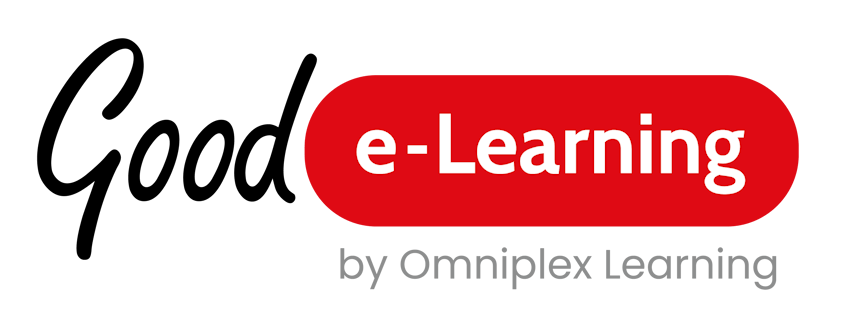Enterprise Architecture is a comprehensive yet highly valuable discipline. It is used to create ‘architectures’ of organizations: blueprints that define, organize, and standardize different aspects of a business and the relationships between them. This grants a level of clarity that is invaluable to decision-makers guiding both the strategic direction of the company and its ongoing optimization.
Needless to say, with the sheer breadth of EA as a topic, enterprise architects are highly knowledgeable individuals. They will often utilize an enterprise architecture framework to facilitate their work, and this is where TOGAF comes in.
‘The Open Group Architecture Framework (TOGAF)’ is the world’s most popular enterprise architecture framework. TOGAF is utilized by around 80% of Global 50 Companies, as well as other well-known organizations such as NATO and the UK Ministry of Defence. It has gotten to the point where TOGAF certification is often a prerequisite for top-tier enterprise architect positions.
There is certainly value in studying TOGAF, but what about passing the exams? How can one become a TOGAF practitioner, and what does the TOGAF certification path look like?
In this article, we’re going to take you through our top tips for preparing for and passing the TOGAF exams!

How do I qualify for the TOGAF exams?
There are no requirements for getting started with the TOGAF certification path, as there are no prerequisites for taking the TOGAF Foundation (Level 1) exam.
To sit the TOGAF Certified (Level 2) exam, students must first pass the Level 1 exam.
Students wishing to study TOGAF Business Architecture (TOGAF BA) will be happy to know that there are also no prerequisites for this exam.
Preparing for the TOGAF exams
Before you actually book a TOGAF exam, it’s important to look at what you’re in for.
The Foundation syllabus focuses on the core elements of TOGAF, including:
- The Core Concepts of TOGAF 9
- The Architecture Development Method (ADM)
- Architecture Views, Viewpoints, and Stakeholders
- The Concept of Building Blocks
- The Key Deliverables of the ADM Cycle
- The Enterprise Continuum
- The Architecture Repository
- The TOGAF Reference Models
- Architecture Governance and the ADM
The TOGAF Foundation exam itself is laid out as follows:
- It is a multiple-choice exam with 40 questions
- Students have one hour (60 minutes) to complete the exam
- The exam is closed-book (no outside resources or other materials are permitted)
- Candidates must score at least 22/40 (55%) to pass
- In countries with English as a second language, candidates have 90 minutes to complete the exam
The Certified syllabus goes into much greater detail, placing special emphasis on the phases of the ADM. The syllabus covers:
- Preliminary Phase
- Architecture Governance
- Business Scenarios Techniques
- Phase A: Architecture Vision
- Architecture Content Framework
- Stakeholder Management
- TOGAF Content Metamodel
- Architecture Implementation Support Techniques
- Phase B: Business Architecture
- Phase C: Information Systems Architectures – Data Architecture
- Phase C: Information Systems Architectures – Application Architecture
- TOGAF Foundation Architecture: The Technical Reference Model
- Integrated Information Infrastructure Reference Model (level 2)
- Phase D: Technology Architecture
- Migration Planning Techniques
- Phase E: Opportunities and Solutions
- Phase F: Migration Planning
- Phase G: Implementation Governance
- Phase H: Architecture Change Management
- ADM Architecture Change Management
- Architecture Partitioning
- Architecture Repository
- Guidelines for Adapting the ADM Iteration and Levels
- Adapting the ADM: Security
- Architecture Maturity Models
- Architecture Skills Framework
The Certified (Level 2) exam is laid out as follows:
- It consists of eight questions
- It is an open-book exam
- Candidates have 1.5 hours (90 minutes) to complete the exam
- Correct answers are worth five points. Second-best answers are worth three points. Third-best answers are worth one point.#
- Candidates must score at least 24/40 (60%) to pass
The TOGAF BA syllabus deals with the Business Phase of the ADM. It goes into much more detail than the typical TOGAF syllabus, covering:
- Business Models
- Business Capabilities
- Value Streams
- Information Mapping
- Business Scenarios
- Developing a Business Architecture With TOGAF ADM
The TOGAF BA Level 1 exam is laid out as follows:
- It is a multiple-choice exam with 30 questions
- Candidates have 45 minutes to complete the exam
- The exam is closed-book (no outside resources or other materials are permitted)
- Candidates must score at least 18/30 (60%) to pass
- Additional time will be provided in countries that have English as a second language
Tips for passing the TOGAF exams
Use practice exam papers
Practice exam papers not only give you a chance to test your knowledge, but they can also help you get used to the conditions of the exam itself. This is essential for being able to get yourself into the right mindset and maximize your chances of passing your exam.
Most TOGAF training courses come with at least one practice exam paper. You should also have no trouble finding additional examples online. Companies like Good e-Learning even offer large packs of practice exam papers to help candidates prepare.
Don’t be too disheartened if you don’t pass your first practice exam. Testing yourself will help highlight knowledge gaps you’ll need to focus on in order to pass. The more exams you take, the better prepared you’ll be!
Don’t rush
If you have read about the benefits of getting certified in TOGAF, you might be eager to pass your exam as quickly as possible. However, you should not make the mistake of thinking that passing the TOGAF exams is a cakewalk. If it were, there would be no value in getting certified!
Instead, be sure to give yourself plenty of time to go through and study the syllabus before booking your exam. Most TOGAF courses offer months of access anyway, and Good e-Learning offers exam vouchers that are valid months after the date of issue.
Depending on how you choose to approach the exams, you should be able to give yourself at least six months of preparation time for each. Use this time to fully familiarize yourself with the syllabus and maximize your knowledge retention by taking as many practice exams as you can find. Soon enough, you’ll be more than ready to get certified!
Ask questions
One of the best ways to understand the inner workings of TOGAF is to speak with practitioners. There is a large community of TOGAF users online on forums and websites like Quora, and many are happy to answer questions from both students and fellow practitioners. Several are also eager to market themselves and will do their best to answer any questions as quickly as possible.
Depending on your training provider, you may also have access to tutors or support staff. They should be able to answer any questions you have on the syllabus. If you are training as part of a group, you might even want to consider speaking with your colleagues to find an answer.
Remember, you aren’t expected to know everything, and there are no bad questions! By visiting or joining practitioner groups, you may even find advice that will help you in your career as an enterprise architect.
Review your training materials
If you are serious about passing your exams, you’ll likely be revisiting your training materials more than a few times. Training providers like Good e-Learning offer knowledge checks to help with this, as well as videos, posters, and other resources to help with retention.
If you are studying TOGAF via an accredited course, you should have more than enough time to do this. Online TOGAF courses can also be accessed from most web-enabled devices, giving you the freedom to return to training materials anytime, anywhere.
FAQs
How difficult are the TOGAF exams?
The TOGAF certification exams are by no means difficult, per se. However, it is still important to put in an adequate amount of study time before booking an exam. If you cannot pass any practice papers and are struggling with knowledge checks, you still have prep work to do!
How do I qualify for the TOGAF exams?
There are no prerequisites for sitting the TOGAF Foundation (Level 1) or TOGAF Business Architecture Level 1 exams.
To sit the TOGAF Certified (Level 2) exam, candidates must first pass the TOGAF Foundation exam.
Who runs the TOGAF exams?
The TOGAF exams are run by PearsonVue.
How do I prepare for the TOGAF exams?
The best way to prepare for the TOGAF exams is with a fully accredited course that offers training materials and support. Candidates can also benefit from following the tips we have outlined above.
How do I take the TOGAF exams?
The TOGAF exams can be taken online via a service provided by PearsonVue. The company also has numerous test centers worldwide for candidates wishing to take the exam in person.
Why study for the TOGAF exams with Good e-Learning?
Good e-Learning is an award-winning TOGAF training provider. Our TOGAF Certified course won the Outstanding Certification Product prize at the 2018 Open Group Awards. Since then, we have continued improving our courses and working with experienced subject matter experts to deliver the best TOGAF training experiences on the market.
Each of our courses comes with a variety of highly engaging online training materials, including knowledge checks, instructor-led videos, and free downloadable resources. Our support team is fully qualified to answer questions on TOGAF and can also provide candidates with both free exam vouchers and free resits. Candidates can also return to training resources anytime, anywhere, and on any web-enabled device, thanks to the free Go.Learn app.
Good e-Learning also specializes in delivering corporate training programs designed around the goals and requirements of each client. You will receive a direct liaison who will work to understand your training goals and create a program perfectly suited to your organization. Do you need additional languages? Do some students prefer virtual classrooms over e-Learning? Do you have specific requirements for your LMS? Whatever you have in mind for your corporate training program, we can make it happen.

Want to find out more? Visit the Good e-Learning website today!

